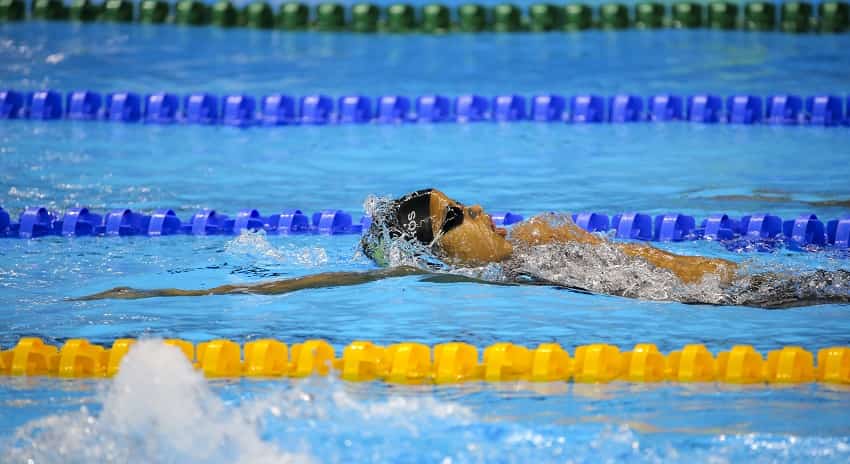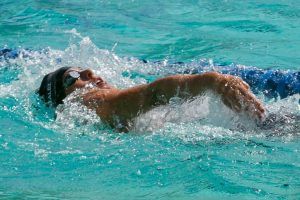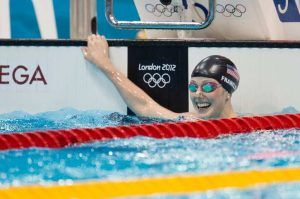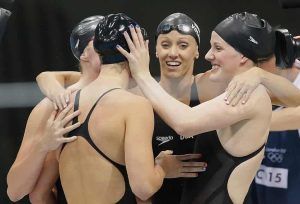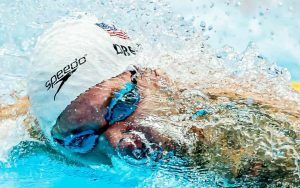Want to bullet-proof your racing? Top up your confidence? And train better? Start by making practice harder than what you’ll experience in competition.
“Everything is practice…until it isn’t.”
Is the way you are training more difficult than what you will experience when it comes to standing up on the blocks?
Or are you holding back, saving those 100% efforts for competition?
And experiencing the kind of shaky confidence and sense of preparation that comes along with pulling your punches in training?
Why Practice Should Be Harder Than Competition
It prepares you for competition, both mentally, and of course, physically as well. If you have gotten up and raced fast in practice under adverse conditions you are more likely to be able to do the same thing when it counts.
Tough workouts give you a confidence that you can’t fake. It gives you a measure of self-belief to know that you have out-trained and out-prepared the swimmer next to you.
This kind of preparation also gives us a way to conquer fear—of failure, of success, of looking silly—of knowing that our best effort is at hand. When we have done everything we can to swim fast it allows us to relax and let fear dissipate.
You learn to deal with the unexpected.
Swim meets rarely go the way we want them to. Warming up with 800 other swimmers is a gong-show. Your suit will rip. You will lose your goggles two minutes before the big race. Your main competitor will suddenly drop 5 seconds off their best time.
You don’t learn to expect the unexpected, necessarily, but you don’t get flustered when the unexpected does—and it always does—happen.
You learn to perform when fully exhausted.
I always envied the swimmers who could swim at a high level in practice. They were the ones who we chose whenever coach gave us the option of a “get out” swim. They’d stand up on the blocks, and belt out a near-best time in their main event mid-week, unshaved, with no tech suit.
It was always impressive.
As a youngster I was under the mistaken impression that I had to save up those great performances solely for competition.
This left my confidence in my preparation a little shaky when it came to standing up behind the blocks, because the swim I hoped to unleash in competition was much faster than anything I had ever done in training.
By getting up and getting after it in training, and performing at a level that nears your PBs,
You are building a winning result (or not).
Each time you step out onto the pool deck before practice you are building a result. Over the course of every lap, every stroke, every set and practice you are slowly creating and refining a result.
When the warm-down has been completed, and you are slowly putting your life together after the 2-hour thrashing in the water, are you able to look back and tell yourself: “What I did in practice today will give me the best possible result in competition.”
You trust your preparation and lessen over-thinking.
One of the biggest gifts that swimmers get from a full and complete preparation is the quiet calm that comes with being able to trust their preparation.
Over-thinking in competition is a performance killer. When we start obsessing about our stroke, the swimmer in the next lane, or even our technique, we tense up and stress out.
Swimming fast at the big meet requires you to turn off your analytical practice brain and just race. No thinking about technique (that’s what practice is for…to instill the technical habits in competition).
Just turning off your brain and swimming like your hair is on fire. When your training is more trying than competition you don’t need to overthink things, because you have already experienced worse a thousand times over.
The Next Steps
Here are a few ways that you can make training harder than the big meet so that your confidence will be rock-solid when it matters most:
Race.
For those of us who are in the middle or back of the pack at practice there is a dazzling opportunity to train better and swim faster.
Pick a swimmer who is faster than you and go toe-to-toe with them every day. Doing so will hone your competitive instincts, and propel improvement faster than if you are trying to out-swim athletes slower than you.
Being the fastest swimmer in the group can often be a curse; with no one to compete with you aren’t pushed to the limits of your abilities in training. You have to do all the pushing yourself.
This is one of the reasons that I told this young swimmer, who had just graduated up to a group where she was the slowest in the lane, that she was actually extremely well positioned for a big jump in improvement.
When we spar with faster swimmers in training we begin to fear faster swimmers less. We see them as human. And beatable.
Simulate racing in the weeks leading up to the big meet.
Got a big race schedule coming up? Worried that you are not going to be able to survive the whole competition with all those races? Do some rehearsals mimicking the schedule in the weeks leading up to the big meet.
Fear goes away when we become familiar with what scares us.
By simulating what you are going to experience in competition, the pain and intensity becomes commonplace and less scary.
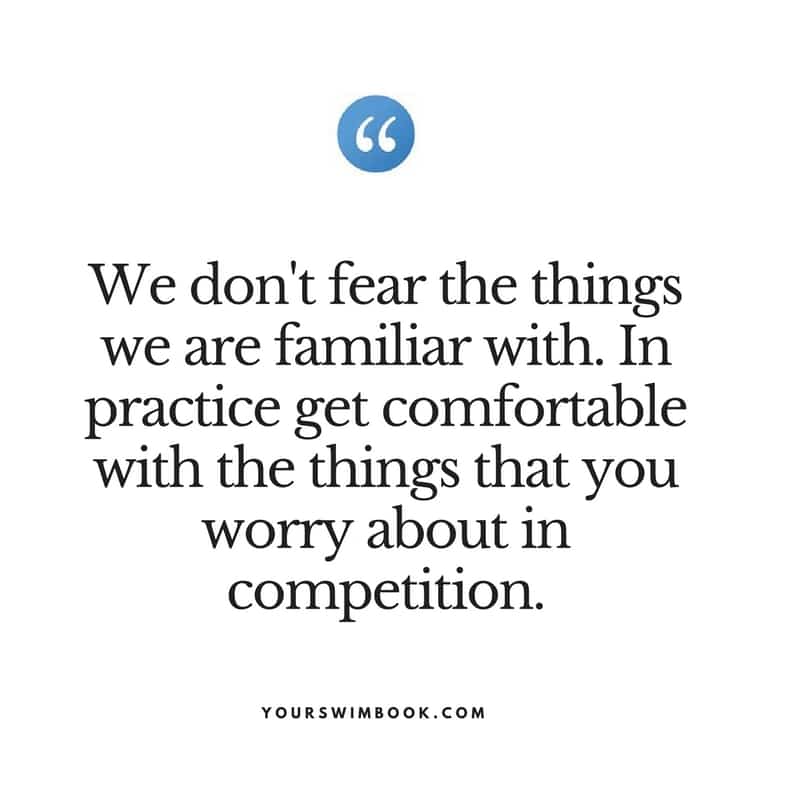
Create daily challenges.
The default setting for most swimmers at practice is completely reactionary. They go to the pool and wait to see what kind of mayhem coach writes on the whiteboard, and base how they feel about what kind of effort they are going to give based on that.
There are things you can choose to work on today in practice that have nothing to do with the sets coach issues you.
Things like breathing bilaterally for the whole practice. Or committing to doing 4 dolphin kicks off every single wall. Or swimming all the way into the wall, head-down, 100% of the time.
Do it better.
You won’t always have the option of being able to train more than your competition. And you don’t necessarily have to, at least, not strictly in terms of doing more yards or meters.
But you can be training better.
After all, how much of your training is done with killer execution? How much of your practice is deliberate? How much of your time spent in the water is focused on improving technique?
The Takeaway
The big thing that comes with making training a cauldron of difficulty is that it gives you the confidence to know you did it better. That you worked your butt off, left nothing on the table, and will present the absolute best version of yourself on race day.
When your name is called out, and you take off the parka and place a foot on the starting blocks, can you look at the swimmer in the next lane and know you have done more than them to prepare?
Don’t sugar coat your training. Don’t “save up.” You are tougher than you think. And you will truly experience this, and become a much tougher competitor, by unleashing a full-hearted pummeling on your swim practices every day.
More Stuff Like This:
6 Benefits of Mental Training for Swimmers. Not sold on the benefits of improving your mindset? Here are just some of the reasons to give it a look.
Hey Coach: Why Should I Track My Workouts? Recently I got an email from a young swimmer asking whether he should start writing out his workouts. Here’s an expanded version of my answer.
The Power of Journaling for Swimmers. Want better workouts? A bullet-proof race plan? Less anxiety behind the blocks? Yup—the simple act of journaling can help. Big time. Here’s how.

